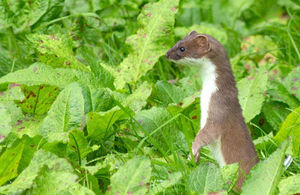Humane trapping standards: Consultation response
A response to the consultation held on implementing improved international humane trapping standards published by the government

A stoat in a field (Credit: Getty Images)
The government has today (19 July) published its response to a six-week consultation on introducing new and improved international humane trapping standards.
The Agreement on Human Trapping Standards (AIHTS) seeks to improve the welfare of fur-bearing animals trapped for their pelts as well as for conservation and pest control purposes.
It sets out clearly-defined minimum trap humaneness standards and trap testing procedures, creating an internationally recognised benchmark for trap welfare.
The government supports this objective and shares the British public’s high regard for animal welfare. During the six-week public consultation, evidence was provided by a range of contributors on the supply, use and marking of traps. The responses were broadly supportive of the increase in welfare standards.
The government will implement AIHTS as soon as possible in 2019 but include a transitional provision for stoat trapping which delays implementation for stoat by a year. The government has listened to the concerns of trap manufacturers and users and allowed a period of time to change to new equipment.
This sends a clear signal to manufacturers and traps users that they must transition to compliant traps, whilst recognising they will need time to do so.
A Defra Spokesperson said:
We are committed to supporting a strong rural economy and upholding countryside traditions and we want to do this in a way that respects wildlife and the environment.
A full copy of the consultation response is available on Gov.uk.